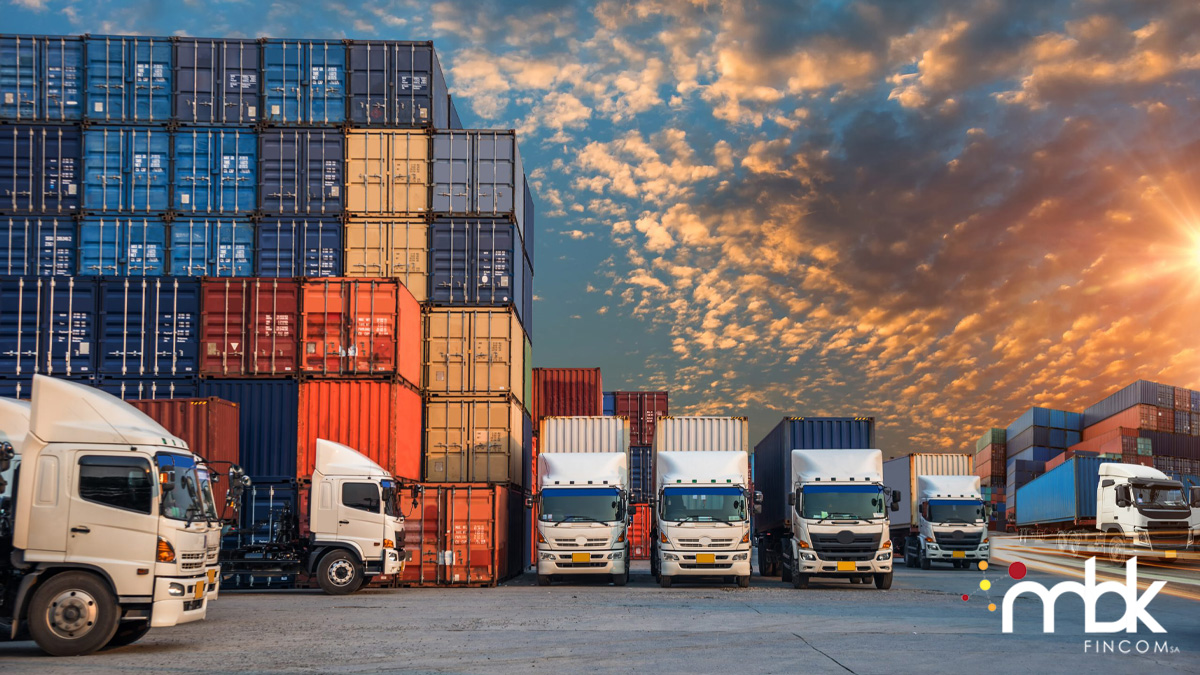2020/2021 has been very challenging for trade and exports; while established practices have been shaken up, new modalities also risk faltering, facing bigger problems.
This is why procurement and logistics are being rethought and redesigned given the results of the last period; building a solid foundation within your business eco-system that is backed by the best practices needed to solve problems of this calibre is increasingly becoming a necessity.
It is a struggle with ourselves to graduate among the most solid companies, which MBK and ProduceShop are constantly and diligently fighting.
Sourcing difficulties: a combination of causes
The crisis that has affected the Asian supply industry is not to be attributed to a single source; as is often the case with major social upheavals, it is a combination of circumstances that flow in a single direction. A sort of tragic funnel which, to date, is raising procurement costs causing difficulties in sourcing many goods on global markets.
The first “blame” can be ascribed to the lack of raw materials: in fact, the first lockdown in 2020, led to the blocking of Asian production plants, affecting the production of monomers, polymers and plastics in general; mining activity in the metal industry has also suddenly come to a halt, causing a chain reaction affecting even specialised sectors that depend on this production area (electronics, with its constant need for semiconductors and components for instance).
The consequences in terms of production:
We are referring to a crisis that, in the best of cases, has reduced the productivity of entire European manufacturing sectors by as much as 40%; other, definitely more inconvenient situations, have seen turnover more than halved, triggering an immobilising vortex on a global scale, just consider the production stoppage imposed by many major names in the automotive sector and the consequences it is having on the entire production chain.
A second chapter has been added to this already adverse economic situation: the so-called ‘container crisis’. The change in export flows, with a preference for exports to the Pacific, since the American market is, in quantitative terms, a much bigger cake than the European one, combined with the causes already mentioned above, has resulted in the availability of empty containers, essential for transporting goods, falling dramatically.
This has caused the freight costs of the few available containers to be almost 6 times higher than the pre-crisis rates; p we are talking about significant figures, which for certain companies have represented a critical blow to the planning of import fees, and consequently to the entire calculation of the internal budget. Considering the fact that the port of Yantian, one of the most important departure points for goods in East Asia, is currently subject to a departure blockage, the overall scenario is getting progressively worse.
A narrowing funnel
The previous two points are compounded by unpleasant backstories, which have contributed to worsening an already critical situation:
- the pandemic situation shows no intention of easing; still talking about Yantian, in fact, despite the Chinese government’s constant denials, rumours are spreading about outbreaks of the Delta variant of Covid-19; this is causing obvious delays in departures and port congestion that can only grow exponentially;
- accidents involving container ships are on the increase: loss of materials in the sea, harbour fires, technical failures and ill-considered operations (the case of the Ever Given ship in the Suez Canal, despite incalculable losses, is only a minor example).
Considering the crisis as a whole, the impacts and reactions that companies are having can be studied from different points of view, assessing noteworthy and more questionable solutions.
Procurement and logistics planning
As a direct consequence, the various markets have taken a major hit. Professionals from different sectors, in addition to constantly rising costs, have seen their supplies reduced either completely or by a large percentage and delivery times extended. This momentary economic situation has required and continues to require the adoption of extraordinary measures; a complete planning of supplies that can abstract the security of Asian suppliers in order to find new methods and solutions that are closer, both physically and in terms of time.
Two are the main operations that MBK’s Procurement department, in conjunction with the Development department, has transformed and integrated into software solutions implemented in-house:
- forecasting and integration of all procurement flows and study of local economic situations; this involves accurate research into the usual trade routes of the main suppliers, including all possible variables and forecasting, to the extent calculable, any recurring unpredictable episodes. The second part concerns the analysis of specific local situations in the usual procurement locations; it includes political interference, economic crises, pandemics and social and consumer behaviour;
- management of cash and working capital based on delays and rising costs: this is where a careful consideration of invested and investable capital becomes relevant. It is not just a matter of disposing of large amounts of liquidity; it is about being able to count accurately and precisely when each investment can be repaid. For example, whereas before the current crisis the average waiting time was three months between investment and repayment, nowadays, this timeframe fluctuates between six and nine months; consequently, it freezes considerable amounts of money. The direct consequences of this situation vary depending on the soundness of the company, of course.

Innovation and results: the case of ProduceShop
Small companies have preferred to freeze orders, avoiding having to invest large amounts of money in hopes of a comeback (frequently unrealized); other more stable companies have managed to establish themselves in an innovative way.
How did these companies manage to handle the consequences of a critical situation?
Let’s hear what Federico Valvasori, CFO of MBK – ProduceShop, has to say about the procedures followed by the company in this situation:
“Being in the middle of a crisis was certainly not easy or pleasant; the awareness of having to commit, however, won over the discouragement.
With a state-of-the-art IT system and a team of skilled and dynamic professionals, we wanted to take an analytical approach; starting by examining the data obtained from existing tools and other applications on the market, we decided to create our own IT solution; this way, we integrated the company’s information and data. Working together with our developers, we came up with a series of software solutions that allowed us to adapt to the big picture; not only staying on track, but even improving some trends. In fact, given the general economic situation, only a careful forecast of the expected margin and its constant monitoring, in the pre- and post-launch phase of the product, has allowed and still enables the company to continue to grow at double-digit rates.
A significant benefit,” continues Federico, “was that, thanks to our solutions, unlike many of our competitors, we did not have to reduce the flow of imported orders, thus cutting investments that would have meant a drop in turnover. Another interesting consequence, given the difficulties expressed by some Asian partners, was the activation or reactivation of European supply channels. This was a positive choice, not only in terms of logistical proximity, but also in terms of shared corporate vision”.
In conclusion
ProduceShop‘sexperience has certainly underlined the importance for a company to have a development and IT department that is up to the task. Being able to work on internal management systems and adapt them to changing external conditions guarantees total and secure control of all processes; it involves consequent savings in resources and costs.
Managing logistics in a rationalised way, which not only calculates the different variables; it also completely readjusts systems and markets according to individual situations, is a mini-revolution in this segment.
Thanks to the digital know-how and an efficient structure, companies like ProduceShop have been able not only to survive a critical wave, but to ride it out and overcome it in an excellent way. Two key factors that define corporate proactivity in other words, a concept based on seeing the business as an ecosystem of communicating, cutting-edge skills that work together to design only the best solutions.
Sources:
- Corporate PR
- ProduceShop development division (https://mbkfincom.com/)
- Ansa
- Corrieremarittimo
- Il Sole 24ore – Economy
- Corriere.it


